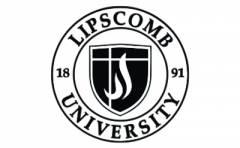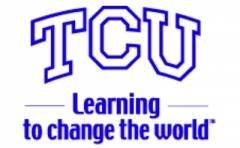Best Curriculum and Instruction colleges in the U.S. 2026
Popular as a master’s program or an undergrad major that preps you for graduate work, Curriculum and Instruction (C&I) is a study in education that focuses on the best ways to teach. The field combines research in student learning and achievement with the practical development of curriculum. To stay current with changes in society, subjects, and government standards, you’ll explore new teaching trends and instructional processes, as well as tried-and-true cornerstones of education.
C&I degree programs are ideal for teachers at any level and/or those who aspire to become curriculum coordinators. Courses typically include lessons on curriculum planning and design, ways to assess a curriculum, and the execution/use of a curriculum. A passion for education is an absolute must, and it would also be helpful to be familiar with current instructional trends. Other important skills include organization, creativity, time management, and flexibility. Graduates are often hired by school districts as Instructional/Curriculum Coordinators, helping teachers not only implement top-notch curriculum but also train teachers in new processes and technologies, such as software or equipment.
Click Here to See the Best Colleges in the USBest Curriculum and Instruction colleges in the U.S. for 2026
CUNY Hunter College offers 1 Curriculum and Instruction degree programs. It's a very large, public, four-year university in a large city. In 2023, 11 Curriculum and Instruction students graduated with students earning 11 Doctoral degrees.
Lipscomb University offers 2 Curriculum and Instruction degree programs. It's a medium sized, private not-for-profit, four-year university in a large city. In 2023, 123 Curriculum and Instruction students graduated with students earning 121 Master's degrees, and 2 Certificates.

University of Florida offers 8 Curriculum and Instruction degree programs. It's a very large, public, four-year university in a midsize city. In 2023, 169 Curriculum and Instruction students graduated with students earning 80 Master's degrees, 45 Certificates, and 44 Doctoral degrees.
Boston College offers 3 Curriculum and Instruction degree programs. It's a large, private not-for-profit, four-year university in a small city. In 2023, 92 Curriculum and Instruction students graduated with students earning 77 Master's degrees, and 15 Doctoral degrees.
Texas Christian University offers 2 Curriculum and Instruction degree programs. It's a large, private not-for-profit, four-year university in a large city. In 2023, 27 Curriculum and Instruction students graduated with students earning 23 Master's degrees, and 4 Doctoral degrees.
University of Maryland-College Park offers 3 Curriculum and Instruction degree programs. It's a very large, public, four-year university in a large suburb. In 2023, 116 Curriculum and Instruction students graduated with students earning 85 Master's degrees, 29 Certificates, and 2 Doctoral degrees.

New York University offers 2 Curriculum and Instruction degree programs. It's a very large, private not-for-profit, four-year university in a large city. In 2023, 7 Curriculum and Instruction students graduated with students earning 4 Master's degrees, and 3 Doctoral degrees.
University of Washington-Seattle Campus offers 2 Curriculum and Instruction degree programs. It's a very large, public, four-year university in a large city. In 2023, 56 Curriculum and Instruction students graduated with students earning 50 Master's degrees, and 6 Doctoral degrees.
University of North Florida offers 3 Curriculum and Instruction degree programs. It's a large, public, four-year university in a large city. In 2023, 10 Curriculum and Instruction students graduated with students earning 9 Master's degrees, and 1 Doctoral degree.
Florida State University offers 3 Curriculum and Instruction degree programs. It's a very large, public, four-year university in a midsize city. In 2023, 200 Curriculum and Instruction students graduated with students earning 176 Master's degrees, 18 Doctoral degrees, and 6 Certificates.
Find local colleges with Curriculum and Instruction majors in the U.S.
What is Curriculum and Instruction?
Improving the educational attainment of our nation’s children involves careful thought about what they are taught and how that material is presented. A degree in curriculum and instruction develops the knowledge base and critical thinking skills necessary to tackle these important educational issues.
Individuals with this degree can become instructional coordinators for:
- Elementary schools
- Secondary schools
- Colleges
- The government
- Educational service organizations.
They perform critical tasks such as designing curricula, improving textbooks and educational technology, and assessing student performance data.
With a degree in curriculum and instruction, some graduates bring what they’ve learned to the classroom as teachers. Others become administrators and use their backgrounds to make important decisions for their institutions.
The educational system faces several challenges at the moment. Recent social movements have brought equality and diversity issues to the forefront. Likewise, COVID-19 has completely altered traditional learning environments. People with a degree in curriculum and instruction will be leaders in evaluating where students stand and what measures to take to ensure success for all.
Master's Degree in Curriculum and Instruction
A Master’s Degree in Curriculum and Instruction prepares recipients for roles in educational settings. A graduate degree demonstrates expertise and commitment to the field. Depending on the number of courses taken each term, a master’s degree in curriculum and instruction takes 1-3 years to complete.
Earning a Master’s Degree in Curriculum and Instruction can lead to many different careers. Schools employ these graduates to teach, oversee curriculum, train faculty, and assess student performance.
Others find work with the government or educational service organizations that focus on educational standards, textbooks, educational technology, and data interpretation.
Master’s in Curriculum and Instruction Salaries
Data from the Bureau of Labor Statistics (BLS) shows the median pay for instructional coordinators in 2019 was $66,290 per year. In addition to educational level, factors such as years of experience and industry can influence pay. For instance, instructional coordinators employed by the government earned a median income of $76,270 in 2019.
The National Council on Teacher Quality notes, “On average, a master’s degree earns teachers an additional $2,760 in their first year of teaching compared to a bachelor’s degree. This salary advantage expands to an average of $7,358 per year by the time a teacher reaches the maximum point of the pay scale.”
Master’s in Curriculum and Instruction Job Projections
While projections do not guarantee job growth, the future appears promising for those with a Master’s in Curriculum and Instruction. The BLS predicts employment in education, training, and library occupations to grow 5 percent from 2019 to 2029, faster than the average for all occupations. In 2019, 192,900 people were classified under the occupational title “instructional coordinator.” By 2029, this number should rise to 204,300.
Master’s in Curriculum and Instruction Career Paths
With a graduate degree in hand, a student can apply for a range of opportunities. Here is an overview of some career paths:
| Career | Salary | Projected Job Growth (2020-2030) | About the Position |
| Instructional Coordinator* | $66,970 | 10% | These professionals plan what is taught, how teachers convey the information, and how well students grasp concepts. |
| Principal | $98,490 | 8% | Principals lead schools. They take an active role in educational decisions at their specific institution, which could be an elementary school, middle school, or high school. |
| Special education teacher | $61,500 | 8% | Special education teachers focus on students with disabilities. They tailor curriculum and teaching strategies to maximize learning outcomes for each individual. |
| High school teacher | $62,870 | 8% | High school teachers instruct students in specific subject matters. Those holding master’s degrees often serve as lead teachers or division chairs. |
*Note that the BLS includes numerous job titles under the umbrella term instructional coordinators, such as curriculum director/specialist/coordinator and instructional designer/specialist/technologist.
Types of Master’s in Curriculum and Instruction Degrees
Institutions vary in the type of degree they award. Graduate curriculum and instruction students may walk away with a master of arts (MA), master of education (MEd), or master of science (MS). All three degrees receive respect in the educational community and open doors to career opportunities.
Individuals going on to doctoral studies often opt for the MS, which usually has a greater emphasis on research. Aspiring administrators sometimes favor an M.Ed., while teachers looking to advance knowledge in a specific academic subject or grade level may opt for an MA.
Types of Master’s in Curriculum and Instruction Degrees
While courses vary by institution, some classes are rather common to master’s programs in curriculum and instruction. A few students can anticipate taking include:
- Curriculum planning – This type of course answers the question “What should be taught?” Expect to learn a variety of both historical and modern theories.
- Methods of instruction – People learn in different ways. Successful educators think about how material gets presented. Exploring teaching strategies increases student retention and engagement.
- Assessment development – To understand how well students comprehend what gets taught, schools depend on assessments. Graduate students in this type of course learn about developing effective, fair ways to measure progress and interpret results.
- Cultural responsiveness – Classrooms are culturally and linguistically diverse. What improvements can educators make to instruction and curriculum to better serve individual students, promote tolerance, and develop global awareness?
How Long Does It Take to Get a Master’s in Curriculum and Instruction Degree?
Completing a Master’s in Curriculum and Instruction commonly requires 30-45 credits, depending on the institution and specific program. In terms of time, this amount translates into roughly one to three years.
A variety of factors influence length:
- Full-time study, of course, leads to faster graduation.
- Some colleges offer accelerated programs for students eager to complete their studies.
- Someone without a background in education may need to take additional courses to fill in gaps, resulting in a longer route to graduation.
Skills Learned in a Master’s in Curriculum and Instruction Program
Graduates of master’s in curriculum and instruction programs walk away as knowledgeable, thoughtful educators. They possess a foundation of the various ways people learn. They know how to think about what gets taught and what improvements might strengthen a curriculum.
Graduates become leaders in their workplace. Honing critical reading and data interpretation skills serves master’s recipients well if they choose to go on to doctoral studies.
Master’s in Curriculum and Instruction Degree Specializations
Some aspects of a Master’s in Curriculum and Instruction program are common to all pursuing the degree. However, focusing on a specialization tailors some coursework to a student’s particular interests and career aspirations.
Depending on the institution, specializations within the master’s program in curriculum and instruction may include:
- Early childhood education
- Elementary education
- Middle school education
- High school education
- Individual academic disciplines (English, foreign languages, math, science, history, physical education, etc.)
- Diversity
- Gifted education
- Special education
- International Baccalaureate
- Learning technologies
- Literacy
- Teacher leadership
- Assistive technology
- ESOL (English to Speakers of Other Languages)
- Transformative teaching
Admission Requirements for Master’s in Curriculum and Instruction Programs
Depending on where a student applies, the prospective school may ask for:
- An official transcript from undergraduate studies that shows classes taken, GPA, and degree awarded with date
- Proof of any graduate classes completed, certifications, or licenses
- A list of places the student has worked, including dates and duties
- A description of other relevant activities, such as volunteer work or participation in professional associations
- Scores from the GRE
- Letters of recommendation that support the candidacy
- Responses to essay prompts
- A personal statement explaining why the student wants to pursue this degree
Many Master’s in Curriculum and Instruction programs only accept certified teachers. In such cases, individuals lacking this credential need to address this issue first.
Earning an Online Curriculum and Instruction Degree
Depending on the institution, a Master’s Degree in Curriculum and Instruction can be obtained on-campus, online, or a hybrid. Students juggling personal and professional obligations often prefer flexible, online studies. Some students prefer taking courses partially or fully on-site for the consistent schedule and social aspects.
Should I Complete Courses Online?
The answer depends on the individual. Many students find pursuing a master’s in curriculum instruction online more affordable because they do not need to leave home. Lack of geographical limitations also expands the pool of institutions they can consider.
Other students focus better when they commit to physically attending a class and being around other students.
When deciding, note that one method is not better or worse than the other. Many schools use the same faculty for both on-campus and online courses. Look for accredited programs that teach what you want to learn.
How Long do Online Courses Take to Complete?
Students pursuing a Master’s in Curriculum and Instruction online tend to enjoy greater flexibility in terms of getting work done. Courses involving asynchronous learning allow students to learn at their own pace. This proves beneficial to students wanting to accelerate their studies as well as those who need more time to complete studies due to other obligations.
Curriculum and Instruction Career and Salary Overview
Master’s in Curriculum and Instruction Career Resources
People enrolled in master’s in curriculum and instruction programs may find the following organizations helpful to their education and career:
ASCD – This well-established group – founded as the Association for Supervision and Curriculum Development – boasts more than 113,000 members from 129 countries. Its stated mission is to “empower educators to achieve excellence in learning, teaching, and leading so that every child is healthy, safe, engaged, supported, and challenged.” The ASCD website offers many articles on critical educational issues as well as information on attending free webinars.
NEA – The National Education Association has long championed justice and excellence in public education. Whether looking for a specific educational report or the answer to a general question, this community of more than three million educators wants to help. Its website includes a reference library on timely topics.
AAE – Since 1994, the American Association of Educators focuses on professional development and advocacy for teachers. This non-union group advocate for maximum involvement by parents and local control of educational facilities. Explore its website for resources and links covering topics such as character education, teaching materials, and job recruiting.
NASET – The National Association of Special Education Teachers serves as a vital resource for curriculum and instruction students focusing on special education. The organization helps members “stay abreast of current issues that are shaping the field, affecting the lives of students, and influencing professional careers.”
NAME – Graduate students interested in advancing diversity and equality should check out the National Association for Multicultural Education. Since 1990, this group has promoted the development of “culturally responsible and responsive curricula.” The multicultural learning section on its website features teacher case studies, reflective activities, and ways to achieve desired student outcomes.
Curriculum and Instruction FAQ
List of all Curriculum and Instruction colleges in the U.S.
| School | Average Tuition | Student Teacher Ratio | Enrolled Students | |
|---|---|---|---|---|

|
CUNY Hunter College New York, NY | 36 : 1 | 22,879 | |

|
Lipscomb University Nashville, TN | 21 : 1 | 5,047 | |

|
University of Florida Gainesville, FL | 20 : 1 | 54,814 | |

|
Boston College Chestnut Hill, MA | 17 : 1 | 15,280 | |

|
Texas Christian University Fort Worth, TX | 18 : 1 | 12,785 | |










